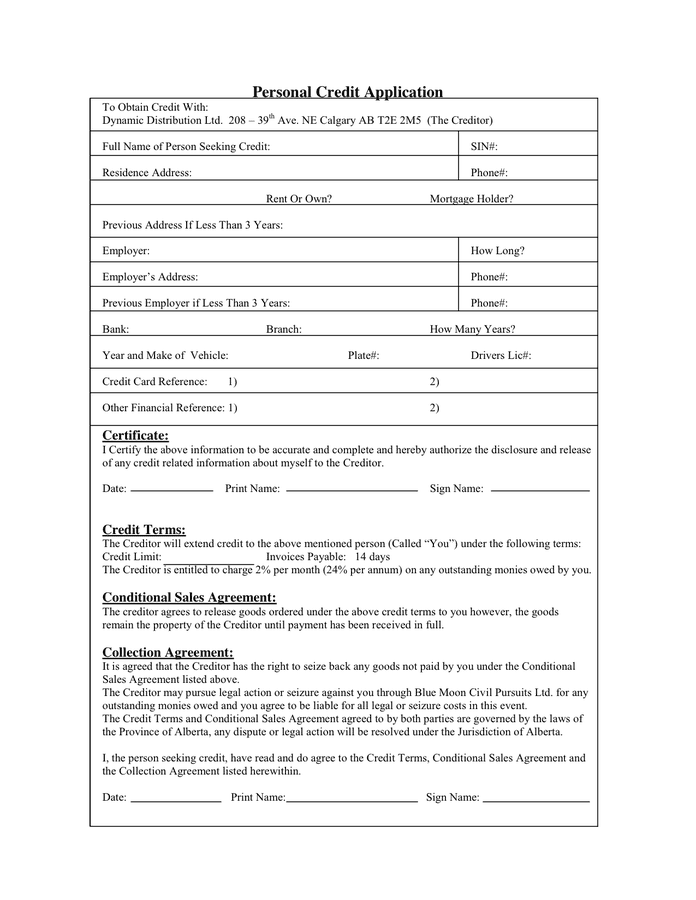5 Steps To A Successful Private Credit Job Application

Table of Contents
1. Optimize Your Resume and Cover Letter for Private Credit Keywords
Your resume and cover letter are your first impression. To make it count, you need to optimize them for private credit keywords and highlight your relevant skills and experience.
Target Specific Job Descriptions
Meticulously analyze each job description. Identify the key skills and responsibilities consistently mentioned. These often include: underwriting, due diligence, portfolio management, financial modeling, credit analysis, leveraged buyouts, and distressed debt. Tailor your resume and cover letter to precisely match these requirements.
- Quantify your achievements: Instead of "Managed a portfolio," try "Managed a $50 million portfolio, resulting in a 15% increase in ROI." Use numbers to demonstrate your impact.
- Use action verbs: Showcase your accomplishments with strong action verbs such as analyzed, negotiated, strategized, implemented, and optimized. This makes your contributions more impactful.
- Highlight relevant software proficiency: Mention your expertise in crucial software like Bloomberg Terminal, Argus, Excel, and various financial modeling software. This demonstrates your technical capabilities.
Showcase Relevant Private Credit Experience
Even seemingly unrelated experience can be valuable. Focus on transferable skills such as financial analysis, risk assessment, deal structuring, and valuation.
- Emphasize relevant projects: Highlight projects demonstrating your understanding of credit analysis, leveraged buyouts, or distressed debt. Even smaller projects can be valuable if you effectively communicate their relevance.
- Highlight transferable skills from other roles: If you lack direct private credit experience, showcase internships, volunteer work, or academic projects that demonstrate relevant skills like financial modeling or data analysis. Connect these experiences to the requirements of the private credit role.
- Consider a targeted summary/objective statement: A concise summary or objective statement tailored to the specific private credit role you're applying for can immediately grab the recruiter's attention.
2. Network Strategically Within the Private Credit Industry
Networking is crucial in securing a private credit job. Building relationships within the industry significantly increases your chances of finding opportunities.
Leverage LinkedIn
Actively engage with private credit professionals on LinkedIn.
- Research companies and individuals: Identify key players and firms in the private credit space that align with your career aspirations.
- Personalize connection requests: Don't send generic messages. Show genuine interest in their work and experience to make a lasting impression.
- Share insightful content: Share relevant articles, insights, and comments to establish yourself as a knowledgeable and engaged professional in the private credit field.
Attend Industry Events
Networking events, conferences, and workshops provide invaluable opportunities to meet professionals and learn about private credit opportunities.
- Prepare talking points: Practice concisely communicating your skills and interests to make a strong first impression.
- Follow up after events: Don't let connections fade. Send personalized emails to those you met, reinforcing your interest and continuing the conversation.
- Join professional organizations: Consider joining the CFA Institute or similar groups to expand your network and stay updated on industry trends.
3. Master the Private Credit Interview Process
The interview stage is where you showcase your skills and personality. Preparation is key to succeeding in the private credit interview process.
Prepare for Technical Questions
Private credit interviews often involve rigorous technical questioning. Practice answering common questions focusing on financial modeling, credit analysis, and valuation techniques.
- Review fundamental concepts: Brush up on key financial concepts, ratios, and valuation methodologies relevant to private credit.
- Prepare case studies: Practice case studies to demonstrate your problem-solving abilities and your understanding of real-world private credit scenarios.
- Practice your answers: Rehearse your responses aloud to build confidence and ensure smooth delivery.
Showcase Your Soft Skills
While technical skills are important, private credit roles also demand strong communication, teamwork, and problem-solving abilities.
- Prepare behavioral examples: Use the STAR method (Situation, Task, Action, Result) to prepare examples showcasing your soft skills.
- Practice active listening: Pay close attention to the interviewer's questions and respond thoughtfully.
- Ask insightful questions: Prepare thoughtful questions to demonstrate your interest and understanding of the firm and the role.
4. Understand the Private Credit Landscape
A deep understanding of the private credit market sets you apart.
Research Different Private Credit Strategies
Familiarize yourself with various private credit strategies, including direct lending, mezzanine financing, and distressed debt.
- Understand the nuances: Learn the intricacies of each strategy, including the risks and rewards involved.
- Stay updated on trends: Keep abreast of industry news and developments to showcase your commitment to the field.
- Read industry publications: Follow reputable publications and thought leaders to stay informed on current market conditions.
Target the Right Firms
Research private credit firms, understanding their investment strategies and culture.
- Consider firm size and focus: Align your applications with firms whose size, investment focus, and geographic location align with your career goals.
- Research recent investments: Understanding a firm's recent investment activity demonstrates your preparedness and interest.
- Align with your interests: Choose firms whose culture and investment philosophy resonate with your values and aspirations.
5. Follow Up Effectively After Your Application
Even after submitting your application, proactive follow-up demonstrates your commitment.
Send a Thank-You Note
Send a personalized thank-you note to each interviewer within 24 hours. Reiterate your interest and highlight key aspects of the conversation.
Maintain Consistent Contact
If you haven't heard back within a reasonable timeframe, politely follow up. This shows your persistent interest and dedication.
Conclusion
Securing a private credit job requires a multifaceted approach. By following these five steps—optimizing your application materials, networking effectively, mastering the interview process, understanding the private credit landscape, and following up diligently—you significantly increase your chances of success in your private credit job application. Start implementing these strategies today and take control of your career journey in private credit!

Featured Posts
-
 Hertha Bscs Crisis Boateng And Kruses Differing Perspectives
May 11, 2025
Hertha Bscs Crisis Boateng And Kruses Differing Perspectives
May 11, 2025 -
 Discovering Merlin And Arthur A Medieval Book Cover Mystery
May 11, 2025
Discovering Merlin And Arthur A Medieval Book Cover Mystery
May 11, 2025 -
 Muellers Last Home Game Bayern Secure Bundesliga Victory
May 11, 2025
Muellers Last Home Game Bayern Secure Bundesliga Victory
May 11, 2025 -
 Ny Knicks Vs Cleveland Cavaliers Where To Watch Time Tv Channel And Live Stream
May 11, 2025
Ny Knicks Vs Cleveland Cavaliers Where To Watch Time Tv Channel And Live Stream
May 11, 2025 -
 Jose Aldo Une Inspiration Pour L Adaptation Et Le Depassement De Soi
May 11, 2025
Jose Aldo Une Inspiration Pour L Adaptation Et Le Depassement De Soi
May 11, 2025
